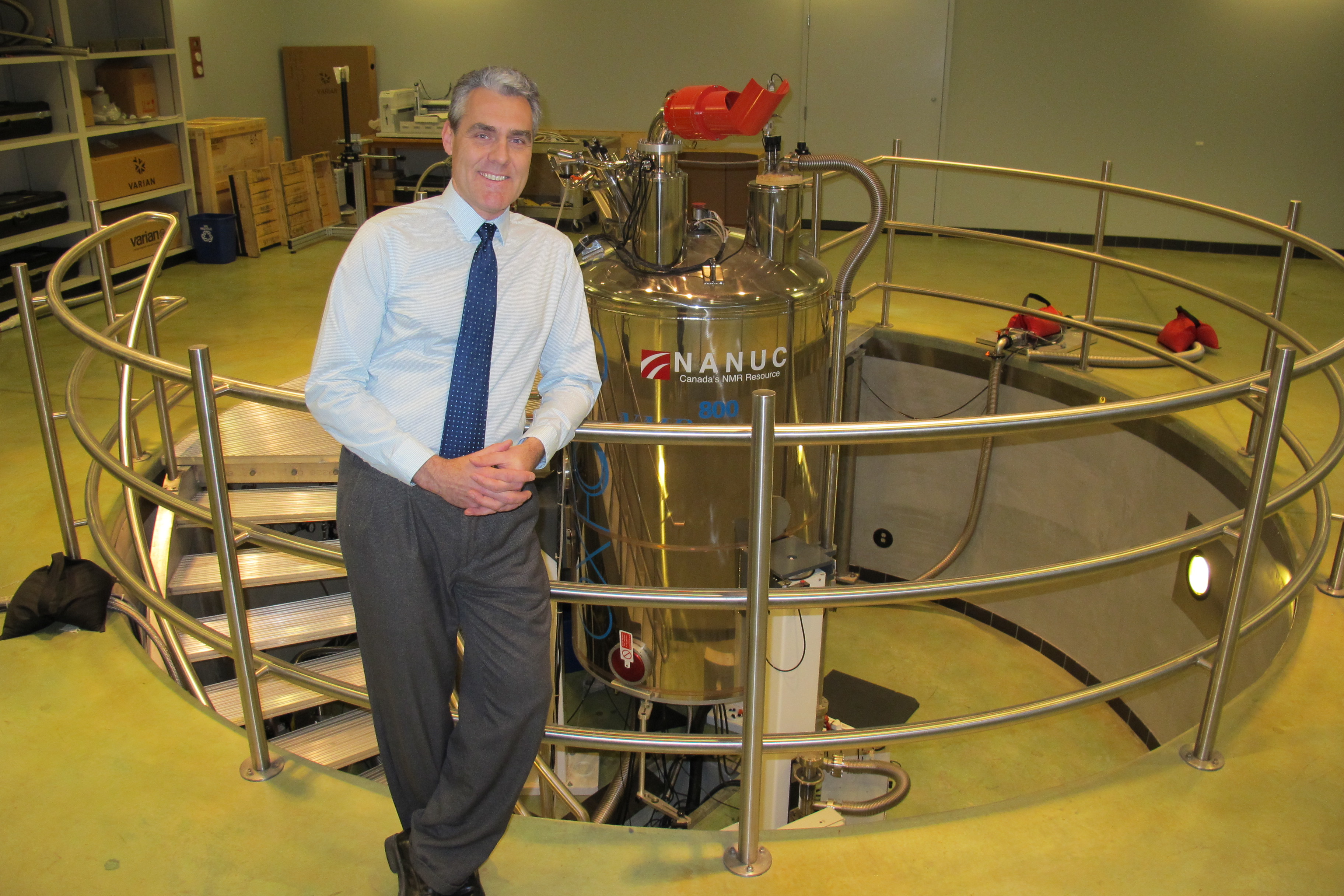
Michael Overduin stands in the U of A's National High Field Nuclear Magnetic Resonance Centre (NANUC)
New research from Michael Overduin in the Department of Biochemistry has captured the attention of one of the world's most prestigious journals. The paper, published in Nature Communications, examines how cell structures can become compromised in skin and heart cells, leading to skin blistering diseases and chronic disease of the heart muscle.
Q - What did your paper set out to explain?
Michael Overduin: We were looking to understand how the strong bonds between the cells of the skin or heart are connected to the inner skeleton that gives each cell its structure. These connections are known to be compromised by genetic mutations and antibodies in cardiomyopathies and skin blistering diseases, respectively, but the actual mechanism was unclear.Q - What did your team discover?
Michael Overduin: We solved the protein structure that forms the bridge between cells and their inner skeleton. Using the three-dimensional structure we could model how cytoskeletal filaments interact. Our predictions of the interacting amino acids were borne out in experiments in living cells, thus showing we had correctly modeled the system. We could also extend our model to the many other similar proteins in humans and other organisms, providing a new level of understanding of this fundamental cell adhesion mechanism.Q - How can this knowledge be used to improve health care? How long might that take?
Michael Overduin: Our goal is to design new ways to prevent sudden death and skin blistering diseases. The new insights allow us to devise new experiments to circumvent the disease process by blocking the antibodies from disturbing the connections between cells. We can also more accurately predict the effects of mutations found in these proteins in some patients.Q - How will this research now move forward? What's next for your team?
Michael Overduin: We are planning to build a new collaborative team at DiscoveryLab including local clinical and basic scientists interested in cardiomyopathies and skin blistering diseases, as well as the underlying principles of cell adhesion. The Campus Alberta Innovates Program has provided funding for the research, and the Canada Foundation for Innovation has also invested in new equipment for our studies, so we're looking forward to making a difference to patients. Michael Overduin's research is supported by grants from Wellcome Trust, Canada Foundation for Innovation, and the Campus Alberta Innovates Program. More information about his innovative research can also be found online at www.discoverylab.ca.